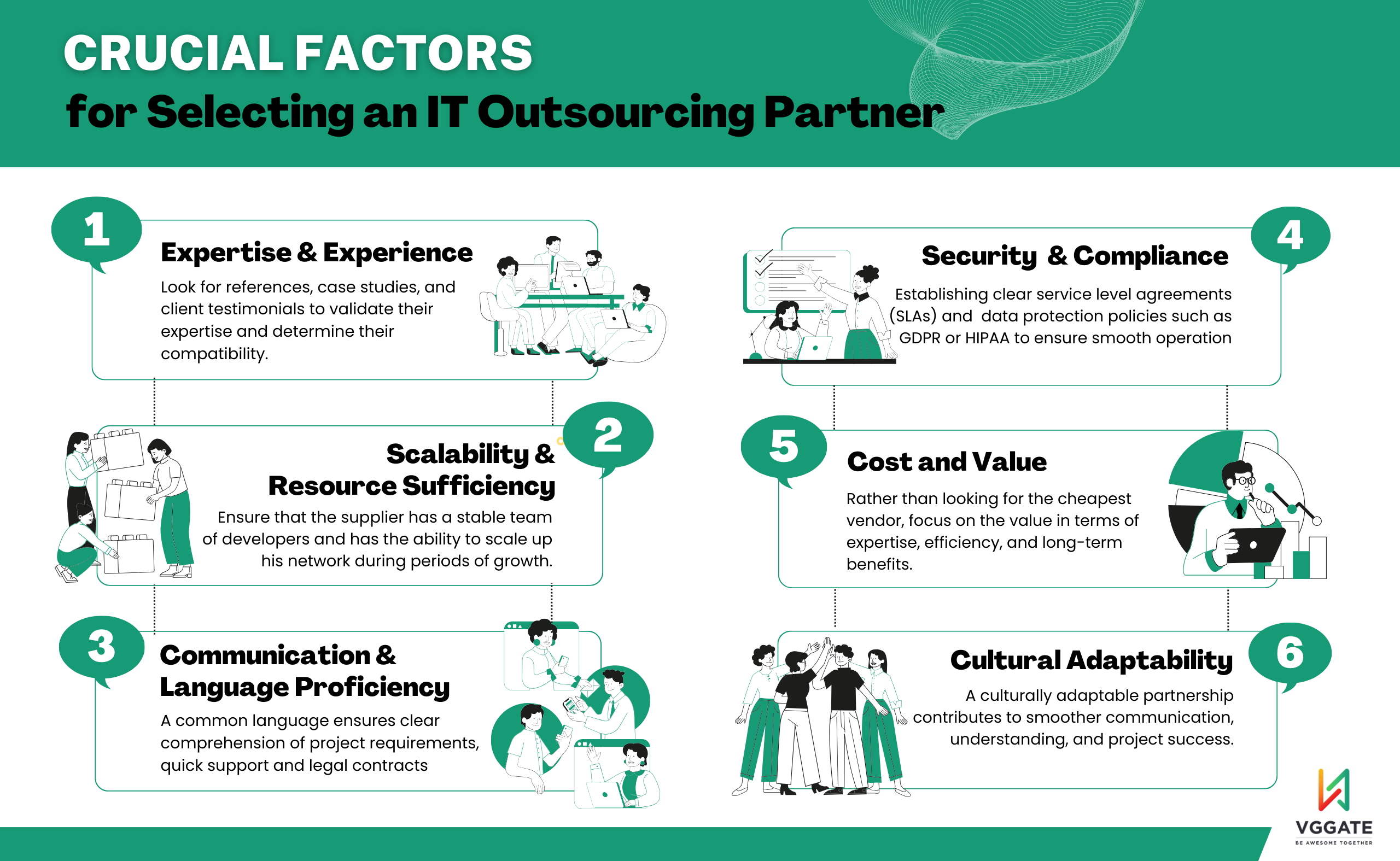Choosing the right outsourcing partner is crucial for establishing a mutually beneficial partnership. Below are key factors to consider when selecting an IT outsourcing partner.
✅ Expertise and Experience
When evaluating potential outsourcing partners, it is imperative to assess their expertise within your specific industry and technology domain. Look for references, case studies, and client testimonials to validate their expertise and determine their compatibility with your organization’s needs.
✅ Scalability and Resource Sufficiency
Resource availability extends beyond the number of personnel, outsourcing partners must also possess a diverse skill set, up-to-date knowledge, and the ability to adapt to emerging technologies. Ensure that the supplier has a stable team of developers and has the ability to scale up his network as needed during periods of growth or demand fluctuations and provide 24/7 support and maintenance.
✅Communication and Language Proficiency
A common language ensures clear comprehension of project requirements, updates and reporting, and quickly supports the resolution of issues. Additionally, language proficiency is crucial for comprehending technical documentation, legal contracts, and fostering a positive working relationship
✅ Security and Compliance
Establishing clear service level agreements (SLAs) is essential for aligning expectations regarding performance, response times, and deliverables. Besides, verify the partner’s security measures, data protection policies, and compliance with regulations such as GDPR or HIPAA. Discuss how they handle sensitive information and ensure the protection of your intellectual property.
✅ Cost and Value
While cost is a significant consideration in outsourcing, it’s equally important to assess the value provided by the partner. Compare overall outsourcing costs, including upfront expenses, and potential hidden charges. Rather than looking for the cheapest vendor, focus on the value in terms of expertise, efficiency, and long-term benefits.
✅ Cultural Adaptability
Consider shared values and cultural alignment between your organization and the outsourcing partner. A culturally adaptable partnership contributes to smoother communication, understanding, and ultimately, project success.



